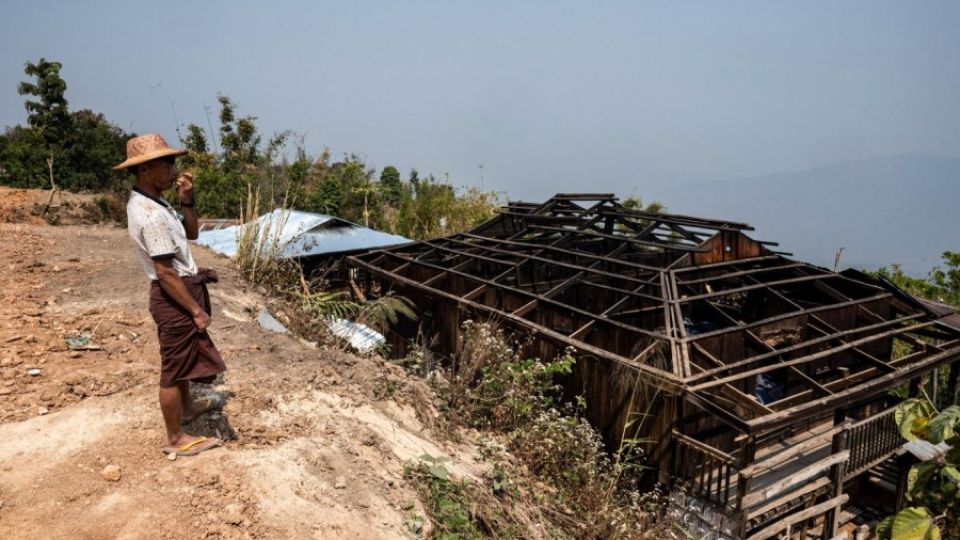June 21, 2023
JAKARTA – While it is true that Indonesia, the current chair of ASEAN, has been unable to achieve meaningful progress in the bloc’s efforts to restore peace and democracy in war-torn Myanmar, outgoing Thai Prime Minister Prayut Chan-o-cha’s blatant attempt to form rival initiative on the conflict is unjustifiable and will be remembered as a humiliation for him following his electoral defeat.
At ASEAN’s biannual summit in Labuan Bajo, East Nusa Tenggara, last month, the bloc’s leaders reiterated demands that Myanmar junta leader Gen. Min Aung Hlaing fully implement the Five-Point Consensus (5PC) for peace he signed in Jakarta two years ago.
The 5PC calls for an immediate end to violence in Myanmar, dialogue among all parties to the conflict, the acceptance of humanitarian assistance from ASEAN and a visit by a special ASEAN envoy to meet with all stakeholders. Clearly, the junta has ignored its commitment, and therefore, Indonesia must redouble its efforts to implement the peace agreement.
But the outgoing caretaker government of Thailand has not given up hope of blocking ASEAN’s mission, out of support for its kindred Myanmar regime. Prayut himself came to power in 2014 following a military coup and has been accused of manipulating the 2019 election to prolong his rule.
To ASEAN’s surprise, Prayut’s government unilaterally hosted a meeting involving representatives of Myanmar’s junta on June 18-19. The initiative ran counter to ASEAN leaders’ decision to diplomatically isolate Myanmar until the junta displayed respect for the 5PC.
Thai media reported the meeting was attended by Laos, Cambodia, India, China, Brunei and Vietnam. Indonesia, along with Malaysia and Singapore, refused to join.
Not only has Prayut’s maneuvering undermined ASEAN’s suspension of the Myanmar junta from participation in the bloc, it has also revealed further disunity in ASEAN in dealing with Myanmar.
In 2021, Prayut declined to attend the ASEAN emergency summit on Myanmar in Jakarta, during which the 5PC was formed. He also skipped last month’s ASEAN Summit, citing his national agenda. Perhaps from the outset he knew the regional bloc would be unable to quickly solve the Myanmar crisis.
Prayut said his government’s recent Myanmar talks were necessary to protect Thailand, which shares a long border with the conflict-torn country, Reuters reported.
“We suffer more than others because Thailand has more than 3,000 kilometers of shared land border as well as a maritime border,” Prayut told reporters. “That is why the talks are necessary. It is not about taking sides.”
Ngurah Swajaya, a special Foreign Minister Retno Marsudi staffer, criticized Prayut’s move.
“If one country takes the initiative, go ahead, it’s their right. But when talking in the ASEAN context, we have rules of the game that must be respected,” Ngurah said.
Ngurah insisted that Indonesia had made significant progress in dealing with the Myanmar crisis, citing the completion of a road map to distribute humanitarian aid to parts of Myanmar, even though an unknown group recently opened fire on an ASEAN humanitarian convoy in the country.
Indonesia has also held some 75 discussions with stakeholders in Myanmar, including the junta, the National Unity Government (NUG) and other opposition groups.
But Ngurah acknowledged that the situation in Myanmar was so complicated that Indonesia could not fix it during its one-year chairmanship.
Retno has been pursuing mostly behind-the-scenes diplomacy on the Myanmar issue. While some level of discretion may be necessary to avoid inflaming the crisis further, the public has a right to know about ASEAN’s efforts to return peace to Myanmar and must not be kept in the dark for long or without good reason.
It is unlikely that the Myanmar crisis will come to an end during Indonesia’s chairmanship of ASEAN, but the country can at least bring the divided non-junta elements together to present a united front. A unified opposition would put pressure on the junta to accept the 5PC as the basis for a regional solution to the crisis.
The people of ASEAN, especially those of Myanmar, have the right to know what the bloc has done to stop the junta’s brutality.


